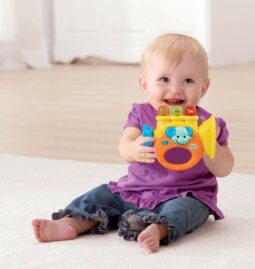What makes an excellent parent?
A responsible parent will compromise and make decisions based on what is best for the child.
A good parent can be imperfect. Not everyone is perfect. Not all children are perfect. Therefore, it is important to keep this in mind while setting our expectations.
Parenting is not about giving children perfect lives. However, we can’t assume that our goal is not attainable. We have high expectations for ourselves, and then for our children. We act as examples for them.
Here are 10 strategies for child rearing. Many of these things are not easy or quick. No one is capable of doing all of these jobs all the time. However, if you continue to practice the tips in this parenting guide in any way at all, then you will still be getting in the right direction.
#1 BE A GOOD EXAMPLE.
Don’t tell your kid what you want them to do. Show them.
Humans are a special species in part because we can learn through imitation 1. We are conditioned to mimic the actions of others to understand them and to integrate them into our own. Kids, in particular, watch what their parents do very closely.
So, be the person you want your child to be—respect your child, show them positive behavior and attitude, have sympathy for your child’s emotion—and your child will follow suit.
#2: LOVE THEM AND SHARE WITH THEM BY ACTION
There is no such thing as being too kind with your child. Loving them cannot spoil them, too. The things you can do in the name of love, like material indulgence, leniency, low expectation, and overprotection. If gifts are exchanged instead of genuine love, you will have a spoiled child
Loving one’s child means providing nurturing and care, spending time with them and supporting their developmental needs.
Showing love triggers the release of feel-good hormones that can produce positive physical effects. These neurochemicals can give us a deep sense of calm, emotional warmth and contentment, from these the child will develop resilience and not to mention a deeper bond with you
#3: Maintain a positive, patient, and nurturing parenting style.
Babies are born with around 100 billion neurons in the brain with very few connections between them. The connections we form through our thoughts, actions, and personalities defines who we are. They are formed through experiences in our lives.
Help your child develop positive experiences. They will be able to experience positive experiences firsthand, and provide this knowledge to other students.
Give your child difficult experiences. Our goal is that they won’t develop to the point where they’ll thrive.
Sing a silly song. Have a long day. Walk around the park. Encourage your child to laugh. Engage in an emotional outburst. To solve a problem and approach it positively.
Not only will positive experiences you have with your child create the greatest memories in your child’s brain, but those memories will last a lifetime.
When it comes to discipline, it’s difficult to maintain a positive attitude. But Positive Discipline is possible without resorting to punitive measures.
Being a good parent requires teaching your child the moral basics, like right and wrong. Having limits and knowing how to enforce them are the keys to effective discipline. Be careful and firm in applying the rules. Focus on the behavior and what caused it. And provide an opportunity for learning for the future, providing an alternative to punishment.
#4: BE A SAFE EARTH FOR YOUR CHILD.
To ensure that your child is safe and well taken care of, be responsive to signals and be sensitive to children’s needs. Recognize your child as a unique individual. Be a safe place for your child to feel secure, warm, and happy.
Children raised by parents with strong emotional regulation skills tend to fare better emotionally, socially, and mentally.
#5: Talk to your child and help their brains integrate.
Everyone knows about the importance of communication. You should speak to and listen to your child carefully.
By maintaining an open line of communication with your child, you build a stronger bond and so your child is more likely to come to you with problems.
Another reason for communication is to help your child integrate different parts of the brain.
Integration is similar to how our body functions by having different organs working in conjunction with each other for a healthy body. When different parts of the brain are interconnected, they allow for a person to function harmoniously as a whole and better mental well-being.
To do that, consider troubling experiences. Let your child give you an example of what happened and how he/she felt to develop attunement. You don’t need to have answers. Parents do not need to have all the answers, but they must have some of them. Just sitting down with them and conversing will help them clarify their experiences and integrate memories.
#6: REFLECT ON THE OWN CHILDHOOD
Many of us wish to see a better parent than our own. And those who had a strong upbringing and a happy childhood would want to change certain aspects of how they were brought up.
But very often, when we open our mouths, we talk just like our parents did.
Reflecting on our own upbringing is a step in knowing why we parent the way we do so. Take note of stuff that you would like to alter and think about how you would do it better in a real scenario. Try to be conscious and change your actions the next time these problems come up.
Don’t give up until you first succeed. It takes practice, a lot of practice, to actively adjust one’s child’s methods of education.
#7: TAKE CARE OF YOUR WELL-BEING
- Parents deserve some relief too.
- Take care of your own health.
Many times the health of one’s marriage and/or one’s own health are put on hold when a child is born. If you ignore them, they will turn into bigger problems in the future. Take time to devote yourself to your romantic relationship.
Don’t be afraid to ask for parenting assistance. Taking time to rejuvenate the mind is important for achieving health.
The proper amount of physical and mental activity by parents will make a big difference in how parents care for their children. If these two components do not work, your child will also fail.
Final thoughts on parenting
The good news is, it is also really satisfying, even though parenting is challenging. The bad part is that bonuses usually come much later than hard work. But if we do our hardest now, hopefully we’re going to reap the benefits and have nothing to regret.
Know that there’s a difference between being a decent parent and being a perfectionist when it comes to parenting. While improving your parenting skills and trying to be a good parent are crucial, when you make mistakes, don’t beat yourself up. No one is an ideal parent.
As a consequence, it is not going to damage your children to make a mistake now and then. Only own your mistakes, make amends, and move on if you need to. Focus on being there for your children regularly, setting limits and laws, and telling them that you love them.










